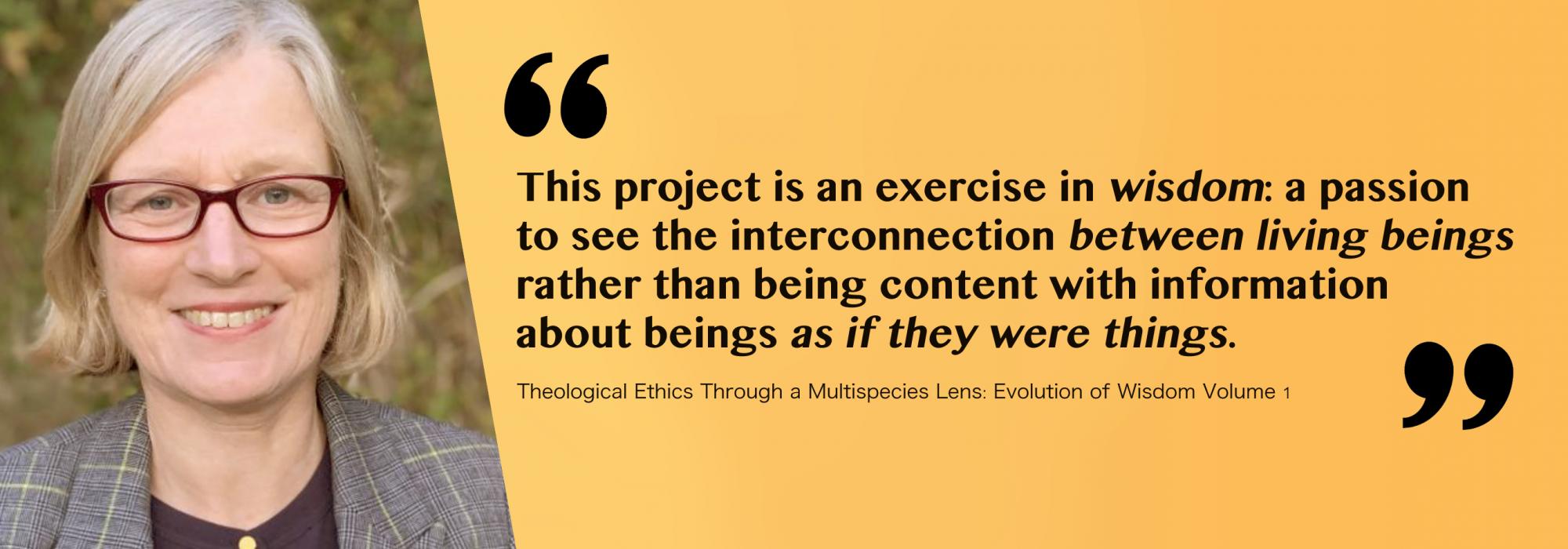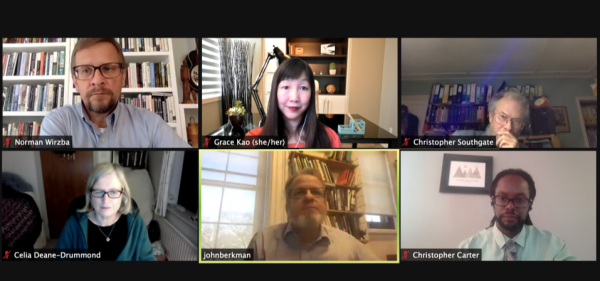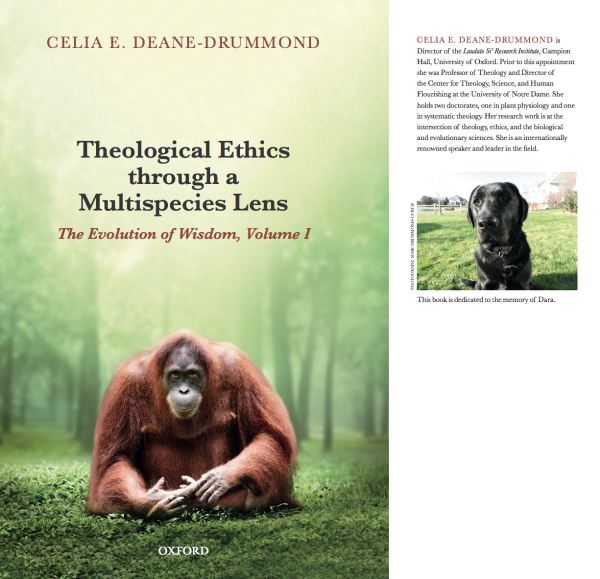
American Academy of Religion discusses latest book by Celia Deane-Drummond
Key Details
The American Academy of Religion (AAR) recently hosted a panel to discuss Celia Deane-Drummond’s latest book, Theological Ethics through a Multispecies Lens: Evolution of Wisdom (Volume 1).
The discussion was sponsored by the International Society for Science and Religion (ISSR), coordinated by Ron Cole-Turner (Pittsburgh Theological Seminary), with presider Christopher Carter (University of San Diego), who represented the Animals and Religion subgroup at AAR who were also co-listing this session. Panelists Norman Wirzba (Duke University), Christopher Southgate (University of Exeter), Grace Kao (Claremont School of Theology) and John Berkman (Regis College, University of Toronto) offered their respective responses to the book. This was followed by Celia’s remarks to some of the points raised, after which a lively discussion ensued, including questions from the audience.

Among the many thoughtful points raised by the panelists was a comment about whether the book should start by focusing on the issue of sin, including looking at the current crises facing humanity, the continuing threat of extinction of many species, and our inability to connect with other creatures. In her response, Celia explained her intention to focus on creation instead of fall. She said, “I decided to make this a more positive volume, as what I am trying to argue for in this book is a case for thinking about our humanity differently – as seen through an interspecies and ideally a multispecies lens. If we don’t have any sense of that, then any remorse of broken relationships with animals and other creatures won’t make sense.”
She continued, “my purpose in this book was two-fold: first, argue for an alternative to the standard animal rights position on the ethical treatment of animals; and, in parallel, also show how the very virtues that we have as humans that we welcome as being integral to our moral being are themselves bound up with our narrative in relation to other beings.”
On the topic of ecological ethics, Celia expressed her hope for the multispecies approach to be applied to every moral decision, not just ecological or agricultural practice related issues, thereby moving away from the personalist ethics that have dominated ethical discussions.
The second volume in the series, Shadow Sophia: Evolution of Wisdom Volume 2, is due to be published in February 2021. This book examines the topics of sin and vice, and explores what the different cardinal vices mean in relation to tendencies in the non-human world.

For more information about Theological Ethics through a Multispecies Lens: Evolution of Wisdom (Volume 1), see here.

